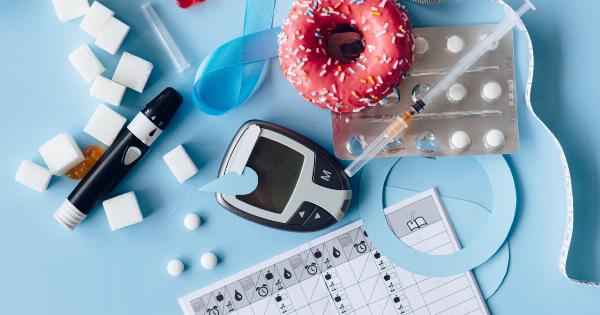Hemorrhoids, commonly known as piles, are dilated and swollen veins that occur in the lower rectum and anus. They may develop due to several causes, including genetics, chronic constipation, pregnancy, and obesity.
However, weather conditions can also play a role in the development and progression of hemorrhoids, particularly during the summer months. In this article, we will explore the relationship between summer weather and hemorrhoids, including the causes, symptoms, and prevention strategies.
What Causes Hemorrhoids?
The veins in the anus and rectum are responsible for aiding with stool passage. However, when too much pressure is exerted on these veins, they may become swollen, inflamed, and painful, leading to hemorrhoids. Some of the causes of hemorrhoids include:.
- Chronic constipation or diarrhea
- Pregnancy
- Obesity
- Prolonged sitting or standing
- Straining during bowel movements
- Heavy lifting
- Genetics
The above factors contribute to the weakening of the blood vessels in the rectum and anus. Hemorrhoids can be internal or external, with symptoms ranging from mild discomfort to severe pain and bleeding.
They require treatment and management to alleviate the symptoms and prevent complications.
How Does Summer Weather Affect Hemorrhoids?
The summer season is characterized by hot and humid weather conditions, which can affect the body in various ways. The following are some of the ways that summer weather can impact hemorrhoids:.
Dehydration
The hot and dry weather during summer can lead to dehydration, which can result in constipation. Constipation is a leading cause of hemorrhoids, as it requires straining during bowel movements, which exerts pressure on the veins in the anus and rectum.
Dehydration can also thicken the blood, making it harder for the body to circulate blood efficiently. This can cause the blood to accumulate in the veins, leading to the formation of hemorrhoids.
Sweating
Sweating is a natural mechanism through which the body regulates its temperature. During summer, the high humidity and temperature cause excessive sweating, which can cause irritation and itching around the anus and rectum.
This can worsen the symptoms of hemorrhoids, making them more uncomfortable and painful. Additionally, sweating can cause skin maceration, making it easier for bacteria and fungi to thrive, which can lead to infections around the anus and rectum.
Less Physical Activity
During summer, most people tend to indulge in sedentary activities, such as watching TV or playing video games, due to the hot weather conditions.
This lack of physical activity can lead to constipation, as the body requires movement to stimulate bowel movements. Moreover, physical activity helps the body to maintain healthy blood circulation, which can prevent the accumulation of blood in the veins. This can reduce the risk of hemorrhoids.
Poor Diet
Summer is a season associated with barbecues, fast foods, and sugary drinks. These foods are often high in saturated fat and sugar, which can lead to constipation and weight gain.
A poor diet lacking in fiber is a primary cause of constipation, which can cause hemorrhoids by exerting pressure on the veins in the rectum and anus. Additionally, consuming too much salt can cause water retention, leading to swelling of the blood vessels.
Symptoms of Hemorrhoids
The symptoms of hemorrhoids vary depending on the severity and location. Some of the common symptoms include:.
- Painful bowel movements
- Bleeding during bowel movements
- Itching and irritation around the anus and rectum
- Swelling and lump formation around the anus
- Discomfort and pain during sitting or standing
- Mucus discharge from the anus
- Inability to pass stool despite urge
If you experience any of the above symptoms, it is advisable to seek medical attention promptly.
Hemorrhoids can be treated and managed effectively, but delaying treatment can lead to complications such as anemia, thrombosis, and strangulated hemorrhoids.
Prevention Tips
Prevention is better than cure when it comes to hemorrhoids. The following are some tips to prevent the development and progression of hemorrhoids:.
Drink Plenty of Water
To prevent constipation and dehydration, ensure that you drink plenty of water throughout the day. Water helps to soften the stool, making it easier to pass during bowel movements.
Moreover, it helps to flush out toxins from the body, promoting healthy blood circulation.
Eat a Fiber-Rich Diet
Fiber is essential for maintaining healthy bowel movements. Include fiber-rich foods in your diet, such as fruits, vegetables, whole grains, and legumes. These foods help to bulk up the stool, preventing constipation and reducing the risk of hemorrhoids.
Moreover, fiber binds to water, making the stool soft and easy to pass.
Exercise Regularly
Physical activity helps to stimulate bowel movements and boost blood circulation. Incorporate a regular exercise routine, such as brisk walking, jogging, or swimming, into your daily schedule.
This can increase the strength and flexibility of the muscles surrounding the anus and rectum, reducing the risk of hemorrhoids.
Avoid Prolonged Sitting or Standing
Sitting or standing for long periods can put pressure on the veins in the anus and rectum, increasing the risk of hemorrhoids. If your work requires you to sit or stand for long periods, take frequent breaks to stretch and move around.
This can promote healthy blood flow and reduce the risk of hemorrhoids.
Avoid Straining During Bowel Movements
Straining during bowel movements exerts pressure on the veins in the rectum and anus, increasing the risk of hemorrhoids. To prevent constipation, ensure that you eat a high-fiber diet, drink plenty of water, and exercise regularly.
Moreover, do not delay bowel movements, as this can make the stool harder to pass.
Conclusion
Hemorrhoids are a common condition that affects many individuals, particularly during the summer season.
The hot and humid weather can cause dehydration, sweating, and poor diet, which can increase the risk of constipation and worsen the symptoms of hemorrhoids. However, by following the prevention tips discussed in this article, you can reduce the risk of hemorrhoids and maintain healthy bowel movements. If you experience any symptoms of hemorrhoids, seek medical attention promptly to prevent complications.































